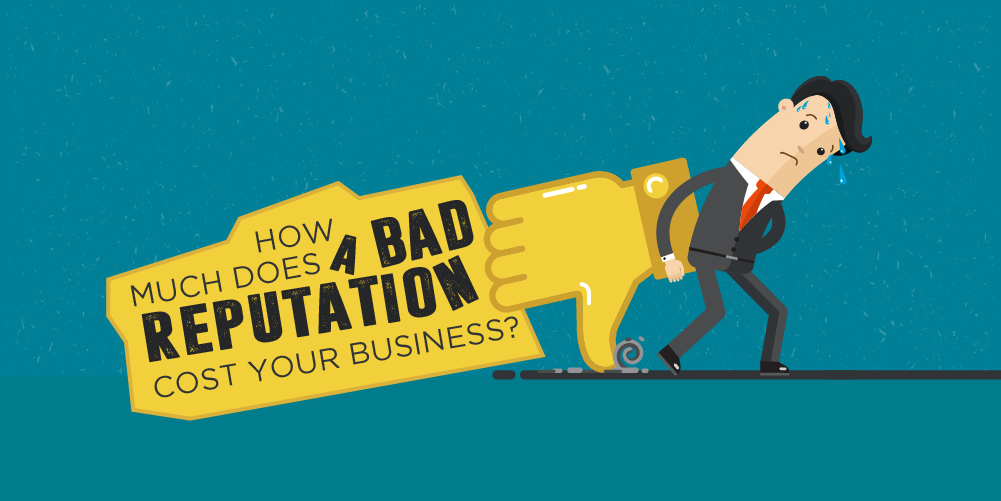ReputationU has a short quiz about maintaining a good reputation. Keep in mind, while your brand is what you say about yourself, your reputation is what others say about your company—including on social media and through traditional media channels. Factors impacting your reputation range from how long you keep customers are on hold on the phone, to how your company interacts with its staff and the community.
“Identifying your reputation is a function of listening. What is being said is just as important as what is not being said about your products, your process and your people,” says Casey Boggs, founder of ReputationU.
It’s quiz time…Let’s get started. *Answers below.
Question #1: Who’s in charge of your company’s reputation?
- Our reputation handles itself. We have a great brand, with staff and customers as our advocates.
- One person or department, depending on the situation—maybe the CEO, marketing, human resources or public relations.
- Many people across departments; it’s a shared responsibility and effort.
- A certified reputation manager who quarterbacks conversations between departments.
Question #2: How does your company identify vulnerabilities to its reputation?
- By monitoring social media attacks and online criticism.
- We perform an annual assessment with surveys to identify reputation challenges; then we close the gaps.
- We continually measure and monitor stakeholder beliefs and expectations through direct engagement and react accordingly.
- By providing staff with solid training on new digital and social monitoring skills to track reputation.
Question #3: What is your strategy around upskilling (and/or reskilling) your employees to protect your company’s reputation?
Upskilling is when you teach your employees new skills or abilities, while reskilling is the act of re-familiarizing your employees with their job duties.
- We hire great employees and trust them to do what’s right and learn what they need.
- Trainings are done in-house and we have videos to review.
- Our reputation is bolstered by a company culture that encourages open communication and ongoing professional development, supported by lifelong learning benefits for all employees.
- Key employees are certified and proficient with the latest skills, techniques and proven processes to enhance, advance and protect our reputation.
A risk-level summary is included at the end, based on your answers, but first, let’s review:
Question #1: Who’s in charge of your company’s reputation?
It better that this function isn’t designated to the CMO! The Chief Marketing Officer has an important role—to market the company. Typically a company either puts its reputation on the shoulders of one department head, or it doesn’t give anyone full responsibility. Both dilute the importance of the vital role of managing your reputation.
Designating a Chief Reputation Officer as a hybrid of the CEO, CFO, CMO, COO and HR Director, assigns someone to take charge of the day-to-day operational responsibilities of managing your corporate reputation. Certification as a Reputation Protector ensures your CRO is trained on how to monitor your company’s reputation and facilitate a good one, as well as assess the financial importance of it.
Question #2: How does your company identify vulnerabilities to its reputation?
Online criticism can undermine the reputation of any organization; causing a good reputation to crumble overnight under an onslaught of social media attacks. While it’s important to know your company’s reputation; monitor and benchmark peer performance; and identify and close the gaps between your reputation and reality, it must be an ongoing effort. Life changes too quickly to do a survey once a year about how your company is perceived, just to check it off your list.
Your CRO will be the daily eyes and ears of your company. Learning to “see” vulnerabilities and fix them before they arise is a skill that can be developed as a certified Protector Pro.
Question #3: What is your strategy around upskilling (and/or reskilling) your employees to protect your company’s reputation?
While you may hire great employees, COVID has mandated proficiency in specific skills to be successful in the new paradigm, ranging from technology to empathy and flexibility. Reputation management is more important now than ever, and can be learned.
A June 2020 survey on The State of Employee Reskilling & Upskilling Training, conducted by TalentLMS, an employee-training platform-provider, found 42% of companies stepped up their upskilling/reskilling efforts after the coronavirus outbreak and 68% invested in reskilling/upskilling training to handle changes within the organization. Moreover, 63% of companies said upskilling and reskilling training has improved their company reputation!
Protector Enterprise training provides your entire team with an approach to reputation management and crisis response. This includes individual executive leaders, from the chief operating officer to your HR director and customer relationship managers.
Drawing wisdom from reputation management specialists experienced on the front lines of corporate issues can highlight the importance of overseeing what is being said about your company. This can help you build a corporate culture with a strong reputation, shore up your vulnerabilities and enhance your opportunities.
| Identify Your Reputation Risk-Level
Consider which category your answers fell into for each question. They may differ or show a pattern. a) Extreme Risk: Things may be going well, but taking a passive approach to reputation management can put your organization at risk. b) High Risk: You are on the right track, but probably have many exposed areas that can challenge your good reputation. c) Medium Risk: You have indicators of a strong foundation for managing reputation risk, which can be enhanced and maintained with professional training and certification. d) Lowest Risk: You have polished your team with “front line” Reputation Protector techniques for reputation management and crisis response, and put them to professional use. |







